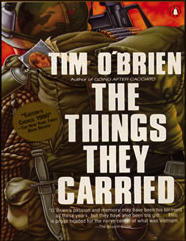"When I was a child, I spake as a child, I understood as a child, I thought as a child: but when I became a man, I put away childish things. For now we see through a glass, darkly; but then face to face: now I know in part; but then shall I know even as also I am known."
First Epistle of Paul to the Corinthians
1 Corinthians 13, verse 11
Those of you who know me well may be surprised to find a quote from the Bible in my blog. I have always found this passage especially moving and resonant, however. I first heard it, in all places, in The Crying Game (a movie I still love, even though most people simply remember it for its twist halfway through the film). I don't pretend to have any contextual knowledge or appreciation for the statement as it pertains to the Bible, and I am usually the first to roll my eyes at people - especially art teachers - whose appreciation for a painting or other work of art extends no further than the thing itself (more on that later). Perhaps someone with a greater understanding of the Bible can elaborate on the context in which this verse appears - I have many friends who are more than able!
But on a fundamental level, I love the verse for how it appears to me - a statement both poetic and contradictory. On one hand, Paul appears to say that he's matured in ways that have deepened his wisdom and outlook on life. But just when you think old Paul has everything figured out, he turns around and blows that theory apart. "...now I know in part; but then shall I know even as also I am known." Which, essentially, renders us children once again.
The concept of putting away childish things is powerful and more than a little melancholy. I translate that statement into the following equation: wisdom/experience/knowledge = sadness. Remember George Orwell's famous aphorism in 1984? "Ignorance is bliss." Who would deny it? And yet, who would willfully remain ignorant to preserve one's peace of mind or even happiness? I suppose it could be argued that each of us *do* choose to remain ignorant of something we're not comfortable with. We do this in the way we choose to occupy ourselves and focus our energy. But some of us certainly choose to remain more ignorant than others. And I have little patience with those who prefer to dodge aspects of life that make them uncomfortable or threaten to expand their world.
This came up in a conversation I had with Nicky this evening as we discussed the pros and cons of having a friend of the opposite gender. Can men and women be friends? I think they can, although not without difficulty. For Nicky, our friendship challenges her goal to remain pure of mind and spirit until she meets the man God intends for her to marry. Some of her friends have questioned the prudence of our friendship. And I know that I have caused her considerable consternation and trouble. But the fact remains that we both respect each other enough to be honest about our feelings and emotions. And more than that, we challenge each other to consider different points of view and appreciate new things. We have both grown considerably as a direct result of our friendship, and I believe that we only grow as we challenge ourselves and broaden our boundaries. To a certain degree, I also believe that the way you view the world will create the world you experience. If you believe that befriending someone of the opposite sex will ruin your innocence, then in a sense it's already happened. You've become so jaded that you've missed the possibility that someone, somewhere, will add to your life, not subtract from it.
I realize that men and women have different perspectives on this issue. Most women of a certain age - say, in their twenties - believe that men are interested in just one thing. And by and large, this is true. So women, in particular, may be a little more cautious when it comes to the idea of being friends with a man. And I believe this is fully justified behavior. But when someone automatically rules out the possibility without even trying...well, that strikes me as sad and profoundly lacking in faith. If you believe that men just want one thing from you, you lack the faith to believe that NOT all men want the same thing (i.e., you - how egotistical!). And on the other side of the coin, if you're so fragile that you cloister yourself from that which you consider tempting, you lack a profound faith in your own strength.
I've dated many women and have my share of regrets. Lord knows that I caused plenty of pain and had my heart broken in return. This isn't something that I'm especially proud of, but neither am I ashamed. It's simply a part of who I am - the sum of my choices and experiences. My larger point is that through it all, a handful of friendships have persevered. Somehow, some way, I remain friends with a few women who I broke up with, or who unceremoniously dumped me! (hard to believe that can happen, isn't it? *smile*) Granted, this is the exception to the rule. But there are a few who remain because we share a strong bond that transcends sex. All of them are blessings in my life.
This leads me to my second, and last, quote of the evening. Leo Tolstoy once said that "Everyone wants to change the world, but no one wants to change himself." Like the verse from Corinthians above, the first time I read this it struck a deep chord within me for reasons I didn't entirely understand. In the context of this blog, however, what I appreciate is Tolstoy's suggestion that changing yourself CAN change the world, albeit in a completely different way. And that, my friends, is a very powerful and optimistic message.
 The first is REM's Fables of the Reconstruction. Tony introduced me to the album our junior or senior year of high school. I didn't think too much of it at first, but the more I listened to it, the more it grew on me. And looking back on it now, the record has a vibe, a mood - whatever you want to call it - that runs through all the songs and draws them together. The whole is greater the sum of its parts. It sounds simultaneously old and new, which is another way to say timeless. Michael Stipe has never sounded so surreal, or wistful. "It’s a Man Ray kind of sky / Let me show you what I can do with it."
The first is REM's Fables of the Reconstruction. Tony introduced me to the album our junior or senior year of high school. I didn't think too much of it at first, but the more I listened to it, the more it grew on me. And looking back on it now, the record has a vibe, a mood - whatever you want to call it - that runs through all the songs and draws them together. The whole is greater the sum of its parts. It sounds simultaneously old and new, which is another way to say timeless. Michael Stipe has never sounded so surreal, or wistful. "It’s a Man Ray kind of sky / Let me show you what I can do with it." The second record is U2's The Unforgettable Fire. Recorded before the band became bona-fide rock stars with The Joshua Tree, this record also has a vibe which I credit, in part, to producer Brian Eno - the modern father of mood music (aka "ambient" - Eno is same man who made a record called "Music for Films" in 1978). And again, like Fables, the tone of the Unforgettable Fire is nostalgic and plaintive. Bono's lyrics have never been so impressionistic, so evocative. I love the first stanza of "A Sort of Homecoming":
The second record is U2's The Unforgettable Fire. Recorded before the band became bona-fide rock stars with The Joshua Tree, this record also has a vibe which I credit, in part, to producer Brian Eno - the modern father of mood music (aka "ambient" - Eno is same man who made a record called "Music for Films" in 1978). And again, like Fables, the tone of the Unforgettable Fire is nostalgic and plaintive. Bono's lyrics have never been so impressionistic, so evocative. I love the first stanza of "A Sort of Homecoming":







